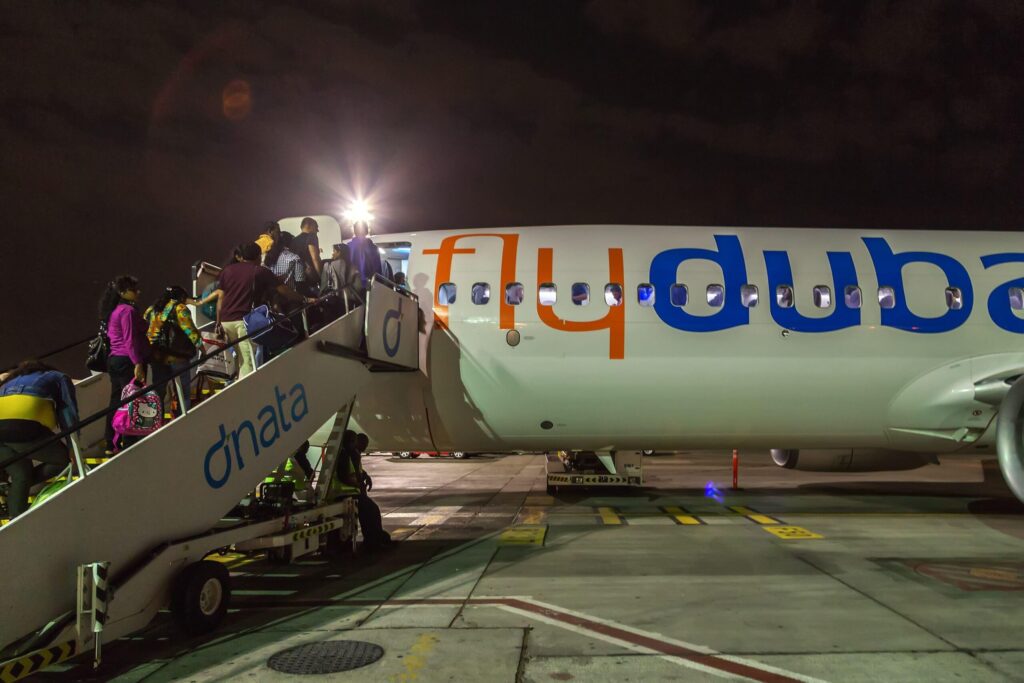Low-cost carriers are rapidly transforming Middle Eastern airspace. Once a marginal presence in a region long dominated by state-backed legacy giants, they now make up more than a third of all scheduled flights.
Central to their evolution is a strategic move into wide-body operations, aimed at capturing new long-haul markets.
Saudi Arabia’s Flynas, with its A330 order, and Flydubai, through its planned acquisition of Boeing 787s, are spearheading this trend.
By extending the low-cost model to further-flung routes, these carriers are generating new revenue streams while intensifying competition with traditional full-service airlines.
In a buoyant market, the recent IPO announcement by Flynas further highlights the strong position of low-cost carriers.
Gulf carriers have evolved the traditional low-cost model to suit regional preferences
This summer, 194 airlines are set to operate across the Middle East, with 37 – or 19 percent – classified as low cost. Between late March and the end of October, nearly 780,000 flights are scheduled and low-cost airlines account for approximately 270,000 of them – a 34 percent share.
For context, the low-cost sector has grown from just 87 flights by Transavia in 2000 to a projected 436,000 this year.
The Middle East offers fertile conditions for low-cost airlines to thrive: rapid economic growth, rising disposable incomes and a vast diaspora within and around the region.
Perhaps most importantly, the 10 locally based low-cost carriers – led by Air Arabia, Flydubai and Jazeera Airways – have evolved the traditional low-cost model to suit regional preferences.
By introducing subtle but effective product differentiators – ranging from flexible fare structures to tailored in-flight services – these airlines have struck a winning formula that resonates with consumers.
Sustainable success in this space requires continuous growth in network reach and fleet size. That growth, in turn, supports lower unit costs and opens up new revenue opportunities.
The region’s low-cost carriers have more than 360 aircraft scheduled for delivery by the end of the decade. Factoring in potential undisclosed deliveries – such as those that may be routed through parent carriers such as Wizz Air Europe or EgyptAir (in the case of Air Cairo) – that number could rise to more than 400 aircraft.
Expanding markets
These developments would double the sector’s current fleet and intensify competition across nearly every regional market.
Aircraft such as the Airbus A321XLR, with its range of up to 4,700 nautical miles, are changing the game. Cities as far afield as Singapore, Lagos, Johannesburg and London are now comfortably within range for both locally based and overseas low-cost carriers.
The A321XLR opens up hundreds of potential routes into the Middle East. Notably, Air Arabia operates the longest narrow-body low-cost service today (about seven hours) from Sharjah to Kuala Lumpur. This is an early indication of what’s possible.
But with opportunity comes heightened competition. While outbound services from the Gulf are growing fast, inbound low-cost traffic is also set to take off.
Major carriers such as IndiGo, Air India Express, AirAsia, Wizz Air Europe, Transavia, Vueling, Easyjet and Ryanair are either already active in the region or seriously exploring it.
More than just a pure low-cost play
For travellers, the rise of low-cost carriers means more opportunities to grab bargain fares to a broader range of destinations.
But from the airline’s perspective, the real value lies in upselling – whether it’s an extra 10kg of luggage, two more inches of legroom or a fast-track security pass.
As Ryanair CEO Michael O’Leary once quipped, he’d happily give seats away for free just to capitalise on upsells. Today’s most advanced low-cost carriers can generate up to $45 in ancillary revenue per passenger.
Even Emirates – one of the world’s leading full-service carriers – earns around $34 per passenger from add-ons. In this respect, the long-term potential for regional players such as Air Arabia or Jazeera Airways is significant.
Competition from all angles
All things considered, the evolving low-cost model is pressuring legacy carriers to justify their higher cost bases. To stay competitive, full-service airlines are investing in product upgrades, such as premium economy cabins, improved service levels or enhanced loyalty programmes.
But for some of the region’s more traditional airlines, the relentless rise of low-cost carriers is creating an existential challenge.
While it’s possible to succeed by offering either a stripped-back or a premium service, the middle ground is becoming increasingly unsustainable.
Mid-market carriers may struggle to differentiate themselves – or justify their fares – unless backed by state support.
John Grant is partner at UK consultancy Midas Aviation



